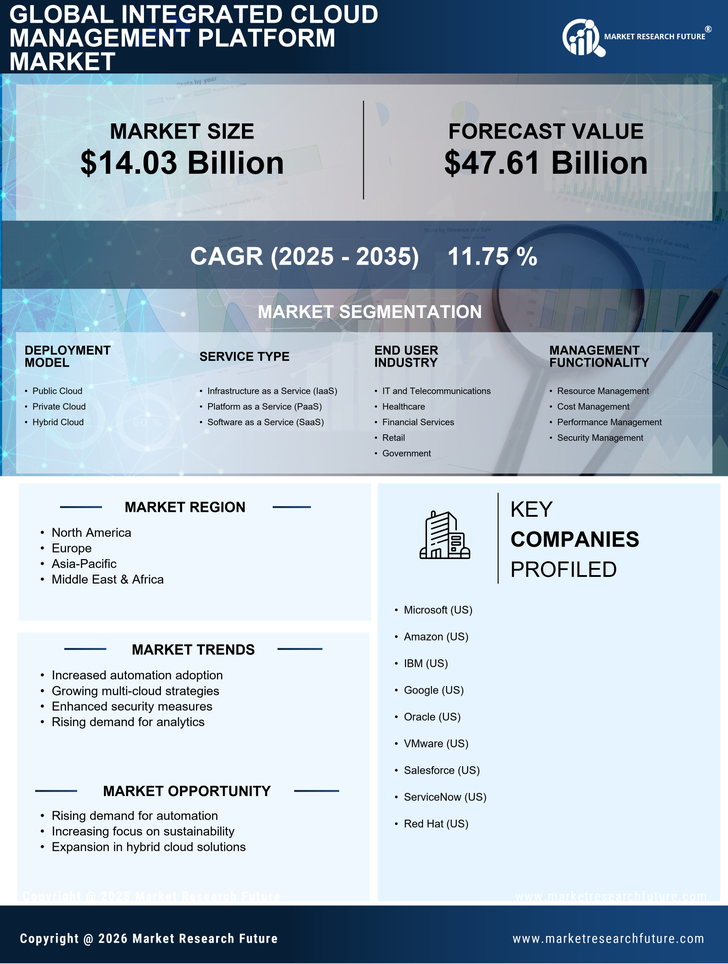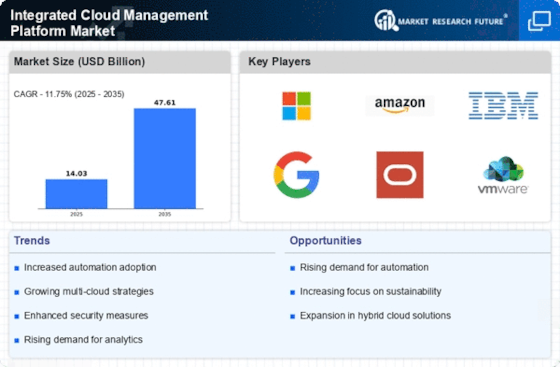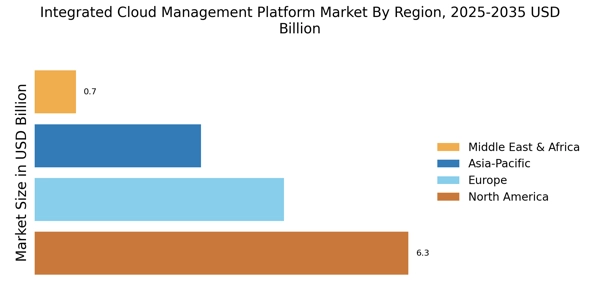Increased Demand for Scalability
The Integrated Cloud Management Platform Market experiences heightened demand for scalability as organizations seek to adapt to fluctuating workloads. Businesses are increasingly migrating to cloud environments that offer flexible resources, allowing them to scale operations up or down based on real-time needs. This trend is underscored by a report indicating that 70% of enterprises plan to increase their cloud spending in the coming years. As a result, integrated cloud management platforms that facilitate seamless scaling are becoming essential for organizations aiming to optimize their resource allocation and operational efficiency.
Rising Focus on Cost Optimization
Cost optimization remains a pivotal driver within the Integrated Cloud Management Platform Market. Organizations are under constant pressure to reduce operational expenses while maintaining service quality. As cloud services become more prevalent, businesses are leveraging integrated cloud management platforms to gain visibility into their cloud expenditures. Recent studies suggest that companies utilizing these platforms can achieve up to 30% savings on their cloud costs. This financial incentive is propelling the demand for solutions that provide comprehensive cost management and resource allocation capabilities.
Growing Adoption of Hybrid Cloud Solutions
The Integrated Cloud Management Platform Market is witnessing a surge in the adoption of hybrid cloud solutions. Organizations are increasingly recognizing the benefits of combining public and private cloud infrastructures to enhance flexibility and control over their data. According to recent data, approximately 60% of enterprises are expected to adopt hybrid cloud strategies by 2026. This shift necessitates robust integrated cloud management platforms that can effectively manage diverse environments, ensuring seamless integration and operational coherence across various cloud services.
Enhanced Data Security and Compliance Requirements
The Integrated Cloud Management Platform Market is increasingly influenced by the need for enhanced data security and compliance. As organizations migrate sensitive data to the cloud, they face mounting regulatory pressures to protect this information. The rise in data breaches and cyber threats has prompted businesses to prioritize security measures. Consequently, integrated cloud management platforms that offer advanced security features and compliance tracking are becoming indispensable. Research indicates that organizations investing in these platforms are better positioned to meet regulatory requirements and mitigate security risks.
Integration of Advanced Analytics and AI Capabilities
The integration of advanced analytics and artificial intelligence capabilities is transforming the Integrated Cloud Management Platform Market. Organizations are increasingly leveraging data-driven insights to enhance decision-making processes and operational efficiency. Platforms that incorporate AI and machine learning can analyze vast amounts of data, providing actionable insights that drive performance improvements. This trend is reflected in a study showing that companies utilizing AI-driven cloud management solutions experience a 25% increase in operational efficiency. As such, the demand for integrated platforms that harness these technologies is expected to grow significantly.


















